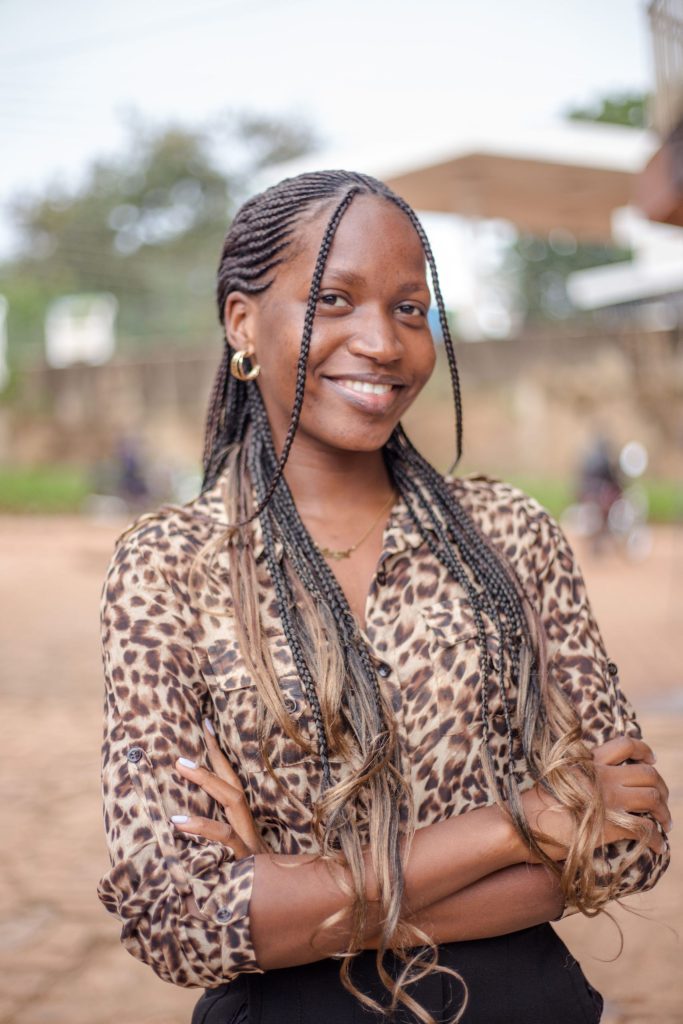

“Put People First” – The 25th World AIDS Conference in Munich
Vitalis Mukhebi (DSW Kenya) and Tanja Siebenbrodt (DSW Berlin)
Munich recently hosted the 25th World AIDS Conference, a gathering of over 11,000 global leaders united by the powerful theme “Put People First.” DSW was proud to be represented at this pivotal event. Our team members, Tanja and Vitalis, engaged in thought-provoking discussions and forged new partnerships. From groundbreaking scientific advancements to inspiring stories from the field, the conference was a wellspring of motivation and innovation. In this blog, they’ll share insights, key takeaways, and the potential impact these discoveries will have on DSW’s work.
Encouraging Opening Speech by Chancellor Olaf Scholz
In his speech, Chancellor Olaf Scholz emphasized that much has already been achieved, but global efforts must continue to end AIDS by 2030. This includes reducing stigma and discrimination. Scholz announced that Germany has joined UNAIDS’ Partnership for Action to Eliminate All Forms of HIV-Related Stigma . He also assured that Germany would remain a reliable partner for the Global Fund to Fight AIDS, UNAIDS, and the World Health Organization (WHO).
Nevertheless, a significant funding gap still exists, hindering the shared goal of an AIDS-free future. DSW, along with its partners, is advocating to ensuring that sufficient financial resources are permanently available.
The Urgency of Now – AIDS at a Crossroads
The importance of financial resources is also highlighted in UNAIDS’ latest report, “The Urgency of Now – AIDS at a Crossroads,” released at the start of the 25th World AIDS Conference. The report makes it clear that sustained investments pay off. When investments decrease, HIV infections rise again. In Eastern Europe and Central Asia, Latin America, as well as the Middle East and North Africa, HIV infections are increasing again. For the first time in the history of the HIV pandemic, there are more new infections outside sub-Saharan Africa. This region has seen the most investment in HIV programs, achieving the greatest successes. However, adolescent girls and young women aged 15 to 24 in sub-Saharan Africa are still disproportionately affected by new HIV infections due to structural inequalities. While progress is visible in many places, HIV infections are not declining fast enough. In 2023, 1.3 million people still got infected with HIV, and 630,000 people died in connection with AIDS.
Can AIDS be ended by 2030?
“The HIV response is at a crossroads. Whether the world ends AIDS depends on the path that leaders take. The path that ends AIDS is not a mystery. It is a political and financial choice.” (Winnie Byanima).
The greatest successes are achieved in countries where the necessary investments are made, and where people have access to the services they need. This includes political reforms and the enforcement of human rights. Progress in the fight against HIV is at risk when civil society spaces are restricted, human rights are questioned, and insufficient financial resources are provided.
AIDS 2024: A Global Push Towards an HIV-Free World
AIDS 2024 brought together a global community to share knowledge and experiences in the fight against HIV. The conference looked back at 40 years of progress while also addressing current challenges like COVID-19 and mpox. The ultimate goal? A world where HIV is no longer a public health threat.
One highlight was the spotlight on individuals cured of HIV, bringing hope for a future without the virus. Advances in prevention, diagnosis, and treatment were shared, with a focus on integrating HIV care with hepatitis and STI services. The role of artificial intelligence in the HIV response was also explored.
While groundbreaking drugs like Gilead’s Lenacapavir show promise, concerns about affordability and access dominated discussions. The conference also underscored the complex interplay between health and politics, with issues like Uganda’s Homosexuality Act and the Russia-Ukraine war impacting HIV response efforts.
DSW highlighted its successful Reaching the Last Girl project at the conference. This initiative empowers adolescent mothers living with HIV in Kenya’s Migori and Kilifi Counties through socio-economic support. The project is made possible by the generous funding of ViiV Healthcare through its Positive Action programme.
The U=U message was a central theme at the 2024 AIDS conference. This powerful concept, meaning “Undetectable = Untransmittable,” was widely discussed and promoted as a crucial tool in ending the HIV epidemic. The conference highlighted the importance of widespread U=U awareness, emphasizing how undetectable viral load eliminates the risk of HIV transmission through sex. This message was instrumental in reducing stigma and encouraging people living with HIV to get tested, start treatment, and achieve undetectable viral loads.
The 25th World AIDS Conference was a stark reminder that while progress has been made, the fight against HIV is far from over. Sustained political will, increased funding, and a focus on human rights are essential to achieve an AIDS-free world by 2030. DSW is committed to working alongside global partners to address the challenges and capitalize on the opportunities outlined at the conference.


Comments